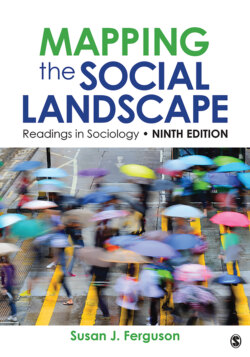Читать книгу Mapping the Social Landscape - Группа авторов - Страница 42
На сайте Литреса книга снята с продажи.
Mindful Skepticism
ОглавлениеOnce, during a discussion of the benefits of education, a black woman said she was outraged to learn that, on the average, a high-school diploma was likely to yield higher earnings (by mid-life) for a white man than a college degree was likely to yield for a black woman. When she said this, another student, a white male said, “I don’t believe it. How can you possibly know that?” Before she could answer, I said, “She probably read the article that was assigned for today. If you look on page 34 in the text, you’ll see a table that shows what she’s referring to.” He paged through his book and found the table. After studying it for a few moments, he harumphed and said, “Well, anybody can make up numbers.”
As a teacher, I was irritated by this response, because it meant this: “No matter what information I am presented with, if it does not suit my prior beliefs, if it does not make me comfortable, I will discount it, so I can continue to believe what I want to believe.” An attitude like this leaves little room for education to make a dent. I wondered why this student would bother to study anything at all, or read any books at all, if he was so intent on being unchanged.
And yet I could not say that his attitude was entirely foolish. Numbers are often cooked up to mislead us, and numbers can be wrong because of honest mistakes, so it is reasonable to be skeptical of numbers, whatever the source. Is there any way to tell which numbers are right? Yes, it can be done; it just requires training. Since most people do not have such training, however, it is understandable that they might say, “I can’t tell what’s right or wrong, so I’m going to treat all statistics as hogwash.”
This is clearly not a mindful response to the situation. It is like saying, “I can’t read, so I am going to treat all books as hogwash.” It would be better to learn to read and to learn also what is necessary to distinguish the hog from the wash. This is hard but not impossible. What helps is being mindfully, rather than indiscriminately, skeptical of new information.
One of the difficulties in learning about the social world is that we must rely on information created and filtered by others. We can’t check out everything for ourselves, even if we know how. This being the case, we must pay attention to how information (in the form of words or numbers) is created, by whom, for what purposes. We must ask, Who stands to benefit if this information is accepted as true? Being mindful in these ways puts us on alert against fraud, yet it does not cut us off from learning.
We should also seek alternative views, since this can help us see the limits of our own knowledge. Abit of conventional knowledge—that “Columbus discovered America,” for instance—seems simple and true until an alternative is suggested: “Columbus launched a brutal invasion of an already populated continent.” This is not just a different way to describe the same events, but a different way of seeing what those events were. If we try out this alternative view, we can look at what passes for conventional knowledge and see that it is, at the very least, contestable.
What is conventional and what is alternative depends, of course, on where you stand. A view that you consider alternative might seem conventional to someone else. Recognizing this relativity of perspectives is part of being sociologically mindful. But there is more to it. Being sociologically mindful, we can also see that these alternative perspectives create the possibility of understanding the world more fully, because they give us more angles from which to view it.
Perhaps by looking for and seriously considering alternative views—and there are always multiple alternatives—we will eventually get closer to a better version of the truth. That is something to aim for. In the meantime, it is wise to consider alternative views because doing so can help us see how competing versions of the truth are created. In this way we can learn more about how others see the world, how we have come to see the world, and what more we might see if we are willing to suffer a bit of uncertainty.
